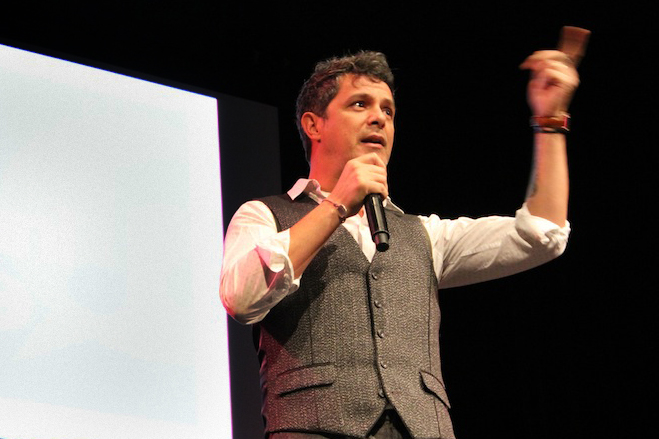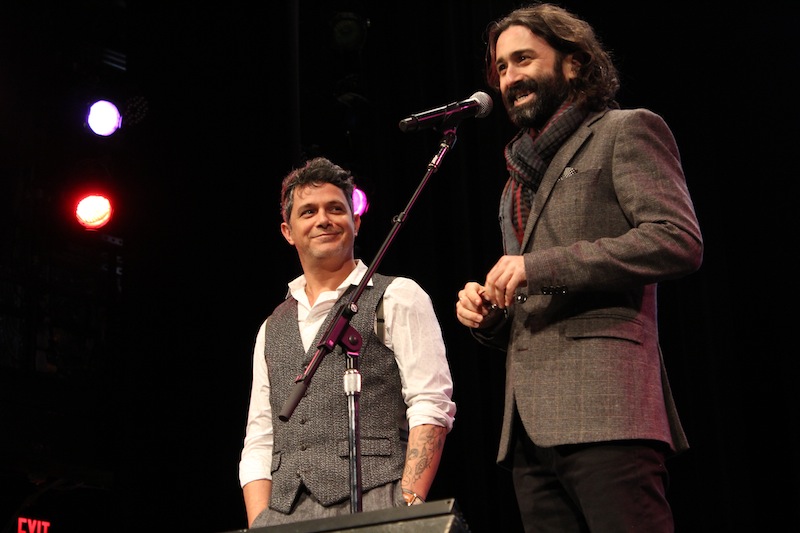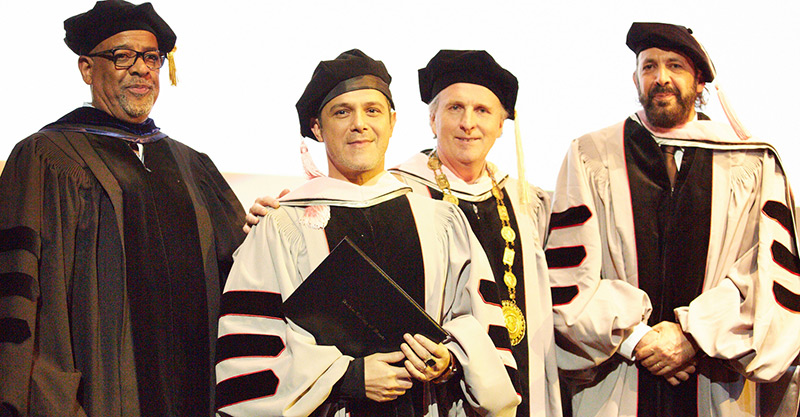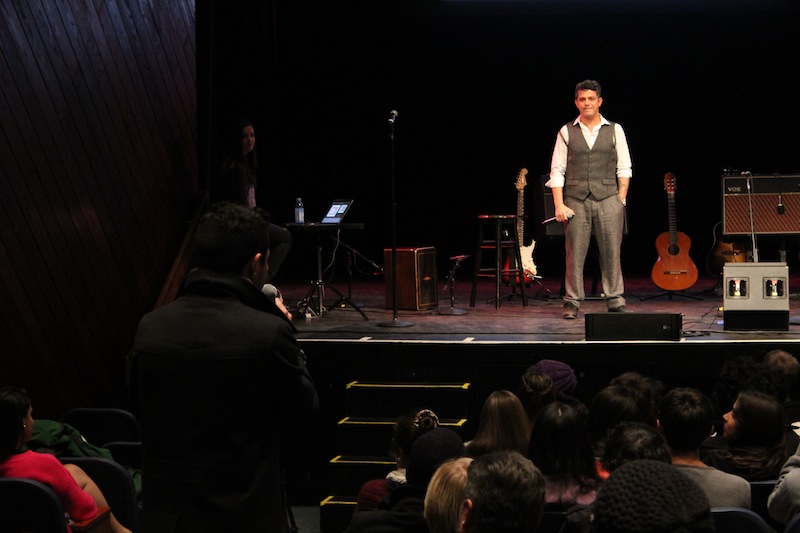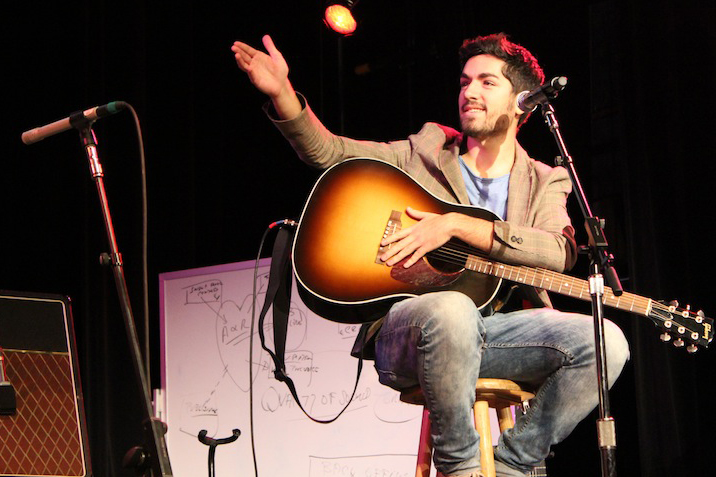Latin Superstar Alejandro Sanz Stresses Passion, Honesty in Music at Berklee Clinic
The day before receiving an honorary doctor of music degree from Berklee, Alejandro Sanz(Opens in a new window), the Latin pop superstar who has won more Grammys than any other Spanish artist in the world, delivered a clinic to an eager audience of students in the Berklee Performance Center. Unlike many of today’s pop stars, Sanz writes the lyrics and music on all of his albums—all of which have gone platinum in Spain, Latin America, and the U.S. His career has included collaborations with some of the biggest names in the music industry, including Tony Bennett, Alicia Keys, and Shakira, among others.
Watch a video segment from the clinic here:
Javier Limón, director of Berklee’s Mediterranean Music Institute, introduced Sanz, his longtime friend and collaborator, to the assembled crowd of Berklee students, many of which are pursuing careers in Latin music. The clinic also included a talk from Universal Music Latin America chairman/CEO Jesus Lopez, who offered students timely information about the rapidly evolving nature of the music business. In a casual Q&A forum conducted in Spanish, Berklee students asked Sanz for insight into the techniques that have helped him achieve widespread international success and the ideals that have helped him sustain that success. Below is a sampling of some of Sanz’s talk at the clinic.
On music’s ability to transcend linguistic boundaries:
“Music is communication. I think it's very important to have this in mind when we begin our career as musicians and artists. Here (at Berklee) there are people from all over the world, and music lets us communicate no matter where we are or what different languages we speak.”
On composing music:
“During all these years, I have tried 1,000 ways to compose. This is not an exact science. Well, obviously Berklee is teaching you methods to compose, but math is not music. I believe it's important to look for your own method. During my career, I have used many methods, including improvising and starting with the lyrics and then adding the melody. The method that works the best for me is to get a guitar or piano and start playing the melody—the structure of the song—and then writing the lyrics over that. The lyrics are a lot easier for me that way, but we need to dedicate enough time to our songs, and we need to give them a good beating when they are not working. If you see your mom cooking, you see that she does it slowly, no? Things take time. You can't pretend to write the best song in the world in ten minutes.”
On flamenco music:
“When I was very little, I would listen to Paco de Lucia, and I was fascinated by him. His guitar sounds like it is singing, and very few people have this ability. For me, flamenco is one of the greatest forms of music. It's very important not to lose one's heritage. That heritage is what keeps your feet on the ground, and that's what is going to make you better in your music. Exploring everything that is possible and cultural diversity is wonderful, but never lose your contact with the land.”
On his influences:
“I was lucky that my father was a musician and a bookseller. In my house, there was no TV—well, one in the salon, but in Spain there were only two channels. Half of the time, the movies weren't for our age, so all I could do was read all the books that my father hadn't sold. There were more books than clothes on the shelves in our house. So that's what I would do when I was young: read. Reading is very important, not only if you want to write, but if you want to develop as a person. The writers that influenced me are the romantics, like Bécquer, on through the costumbristas and Lorca.”
On mixing genres:
“There is a conscious part and another part that simply occurs. It's like if you spend a lot of time some place, you end up speaking with an accent, whether you want to or not. That part is very subconscious. But there is also a conscious desire to mix and to look for different styles. I have worked with Italian producers and Cuban producers and we get immersed in one another’s essence. It's beautiful to have the opportunity to get to know a musician and to transport to his or her country and culture.”
On passion for music:
“I didn't start to work on this because I wanted to earn money with this. I started to compose music because I would die for those songs. It was the only thing I wanted to do in life.”
On honesty in songwriting:
“If you aren't honest with what you do, you won't be able to do it and you will never go past your first song. The honesty is a given—it's not something that you have to fight for. I feel what I do from the first second and, all my life, I have given this priority.”
Watch Berklee students on their trip to perform with Alejandro Sanz at the Latin Grammys:
Translation provided by Brian Gonzalez, Berklee's communications coordinator for global initiatives.

